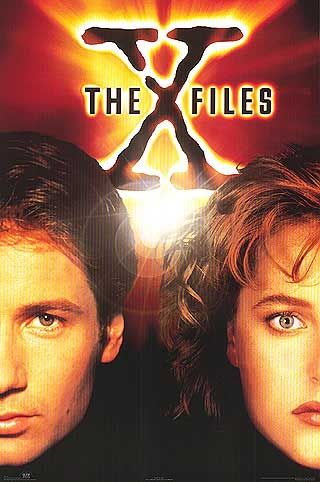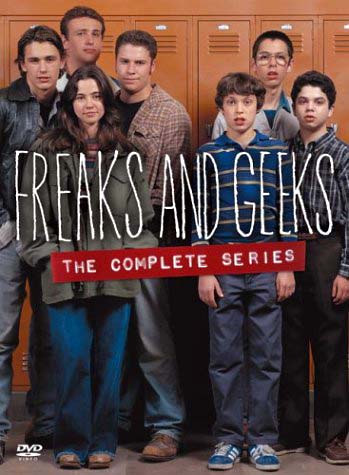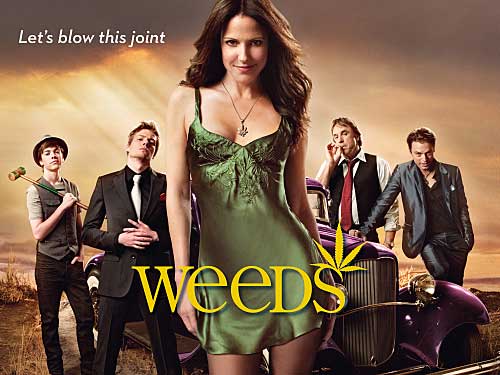
In a word? Indifferent.
It was partially my own fault. Partially the fault of an educational system that I know now, wasn't the best for me. I could have conformed, but didn't really want to. Here's the thing: in elementary school, I was identified as a "gifted" student and as such, was able to attend an alternative educational program two days a week through elementary school and one day a week through junior high. The alternative program absolutely rocked my world. That was the kind of education I responded to—very innovative for the time, very student-driven, very classical in nature. I can easily say that I learned more in those two days a week, than I learned in my "regular" classes. Which had the unfortunate result of boring me silly in my regular classes and also engendered a good deal of resentment in the teachers who were
not pleased I was being pulled out of their classes. So when I did have legitimate issues with subject matter, like math (
*spits three times and throws holy water*) I'd get a response along the lines of "
You're gifted, surely you don't need my help."
So I learned early not to trust the system because the system wasn't helping me.
Now here's the interesting part: I had the opportunity—twice—to forego high school altogether and go to college on an accelerated program, which might not have been a bad idea, since that gifted education was a lot more like a college education than the standard high school education, that was ostensibly preparing us for college, was. So once in seventh grade, I was offered the opportunity to attend a local college, and then again, in ninth grade, I was invited to attend one of the Seven Sisters colleges in the Northeast. But I said no, because I knew it wasn't the right move for me. I wasn't ready and I figured college would always be there.
So off I went to high school.
Now, of course, in high school, there were Honors and AP classes, but after early experiences with those, I kind of threw them over as well for the strangest of reasons—the competitiveness. Which is weird, because as competitive as I am (and I am über-competitive, trust me) the idea of competing for grades, to be deemed some intellectual "best," on what I saw as a false scale, in order to get into the "right" colleges somehow rubbed me so completely wrong. Even then, I knew there were all sorts of intellegences that couldn't possibly be measured simply by grades and test scores (the bane of a gifted education—having learned that a WHOLE lot earlier than most). And to be honest, I actually found more creative teaching and learning going on in the so-called "regular" classes. The Honors and AP were so tightly regimented because of what they
had to accomplish in a set amount of time, there was very little room for intellectual exploration. Whereas the "regular" classes were far more freeform. And you know, I had a much bigger range of personality in the regular classes. I had punks, jocks, stoners, metalheads, immigrant kids, poor kids, rich kids, kids in the middle, artistic kids—you name it, we had it. The AP & Honors classes had a very homogeneous feel to them, with the same kids, in the same classes, with the same goals, year after year. There was a shiny uniformity to them that, in short, got on my nerves, especially with the sense of entitlement they seemed to wear, simply because they had been publicly anointed as "the smart kids". Tell you what, some of the smartest, most well-read kids I ever met were in those regular classes, whereas the AP/Honors kids didn't have time to crack a book that wouldn't help them with their grades or the AP tests. Reading for pleasure? Not so much.
I know that my ranting against uniformity must sound weird, given I spent so much of my time in high school involved in band and corps. But the thing about those pursuits is that yeah, we wore our uniforms and rehearsed for hours on end with a common goal, but in the end, beneath the uniforms, there was such a huge range of personalities in the organizations. So many different people with varied interests. It just wasn't something I saw that much of within the AP/Honors kids.
I think in the end, even though I'm not sure I could have articulated it at the time, I wanted to have time to just
be and to dedicate myself to that which interested me, rather than put myself on someone's idea of the path that I should be on, in order to Succeed.
I never imagined I was that much of a rebel in high school, but looking back, maybe, just maybe, I was a little. It certainly provides a lot of clues to the person I would ultimately become.
 To follow Jenn's example and compare myself to one of my characters, I'd say I was a lot like Kara in BALLADS OF SUBURBIA... just without the heroin addiction. But in truth you'll find pieces of the high school student I was in many of my teenage characters. As you can see in this picture, I had the same boots that were on the cover of I WANNA BE YOUR JOEY RAMONE.
To follow Jenn's example and compare myself to one of my characters, I'd say I was a lot like Kara in BALLADS OF SUBURBIA... just without the heroin addiction. But in truth you'll find pieces of the high school student I was in many of my teenage characters. As you can see in this picture, I had the same boots that were on the cover of I WANNA BE YOUR JOEY RAMONE. But like Kara and her friends, I did use writing to cope. In addition to short stories about kids sitting in diners and poetry about unrequited love and razor blades, junior year of high school, my friends and I started making zines. We had a series of feminist political zines called Kill Supermodels (about killing the idea that women should look like supermodels, not killing actual supermodels of course). I wrote a few personal zines about my struggles with depression and self injury and the emotionally and sexually abusive relationship I'd survived during my sophomore year of high school.
But like Kara and her friends, I did use writing to cope. In addition to short stories about kids sitting in diners and poetry about unrequited love and razor blades, junior year of high school, my friends and I started making zines. We had a series of feminist political zines called Kill Supermodels (about killing the idea that women should look like supermodels, not killing actual supermodels of course). I wrote a few personal zines about my struggles with depression and self injury and the emotionally and sexually abusive relationship I'd survived during my sophomore year of high school.































